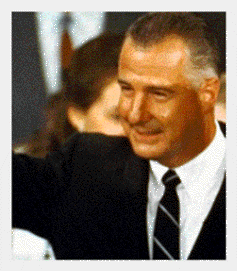Think of this as Volume 12, Number 36 of A-Clue.com, the online newsletter I've written since 1997. Enjoy.
Hard as it is for me to believe I have now been blogging professionally (not here) for five years.
During that time I have brought in well over $100,000, writing blog posts.
I have learned a lot about the market in that time, and I have developed a winning process for writing blog posts that sometimes draw a large crowd and sometimes draw a small one.
So this week we're going back to the original A-Clue.Com beat, Internet Commerce. Here's how you might make good money in the wonderful world of blogging.

- A news story is like a block or a ball. It's whole, entire, filled-in. It gives you as much as you want to know, no matter how deep you go in it, thanks to its "inverted pyramid" writing style. It also needs to be mistake free, because there can be no correction, not really. Even if you screw it up the best that can happen is there will be a box somewhere in the next day's paper, describing your error, and likely a pink slip in your mailbox next morning.
- A column seems like it should be a blog post, but it isn't. A column is always your opinion. But it's also, like a news story, a whole piece. It should have a beginning, a middle, and an end. It should also have a lesson, but that's not necessary. It's more like writing a song than anything else. It should also have the voice of authority.
- A blog post is open-ended. And it's not authoritative. The point of a blog post is not just to be read, but to draw a response. It lives in the moment, like a photograph. It can talk about news, it can start with the news, or it can start with your opinion. The success of a blog post is also determined by its discussion thread, and how you react to being called out. You have to learn not just to accept criticism, but to encourage it, welcome it, and give attaboys to those who bring new facts to the table. It's a little like talk radio in that. Have a take and don't suck.
Let me illustrate all this with an example.

I was agonized by this. I'm a Steve Jobs fan. We're the same age. I have enormous personal sympathy for him. But Apple is a public company, with a duty to disclose material events. If Jobs can ignore those rules, what's wrong with Bernie Madoff doing the same?
Thus my headline, "Steve Jobs nearly died and lied about it." Deliberately provocative. I admitted my own discomfort with a lead that compared Jobs to Prometheus and me to one of the birds sentenced to peck out his liver. But then I got into it, using nearly 20 hyperlinks to illustrate my points. And in the end I was pretty nasty, questioning his motives.
The result? Some 440 talkbacks, dozens of e-mails (including one death threat) and over 130,000 page views within a few days. After readers had time to think about it, more gave it a thumbs-up than a thumbs-down, but the initial reviews were sharply negative. Peoples' feelings were hurt. But I made over $1,000 in just 20 minutes, and the blog (which had been on the verge of cancellation) still draws about 2,000 readers per weekday.
I have developed a process for my professional blogging I'd like to share with you. I don't use PR pitches. They just don't work. I have never done a story off a pitch that drew any sort of crowd. I still do them from time-to-time but they're loss leaders. They're just proof I can do it.
Instead, I follow the news. I open Google News every day, and some other general news sites, and I look for stories of high interest — high interest to readers, to my perceived audience, and high interest to me. I look for stories where I can add a little something. Maybe an opinion, maybe a combination of news from other sources, maybe just an idea to move the story or the business concept forward.
Then I write, and I don't look back. I look for pictures that either come from my employer, from some public record source like Wikipedia, or another blog. Sometimes I use pictures I've taken, but not often because I don't take good ones. It takes me about an hour to write, and post, a professional blog piece. I usually do 4-6 per day. Today I'm doing 7, because I'm also doing this one.

When blogging first began, several years before I got into it, there was a feeling that individuals would be able to use blogging to build their own little businesses. This proved true in only a very few instances. The most successful blogs now are group efforts — sometimes the group is quite large — and the need for professional management (on the technical and ad sides) means that I am, effectively, what I was 25 years ago, a freelance, an independent contractor, a typist for hire.
I also had 25 years of professional journalism experience before I started blogging, and during much of that time I sought all the practice I could get delivering opinions — through columns and in this newsletter. This gave me a feel for readers, for news, and for writing. I write fast. If you want to be a professional blogger it's true — you must write fast.
That's about it. That's what works for me. I know there are other ways to go about it. Bloggers like Instapundit and Eschaton just throw a few lines on someone else's link. Some pretend they're doing columns, others news stories. Most have fairly narrowly-defined beats, not so much for the convenience of the blogger but for the reader and the business, who need to know what they are buying and selling.
This is not a professional blog post. But if it helps you become a professional blogger, or a more professional one, you've made me happy.










